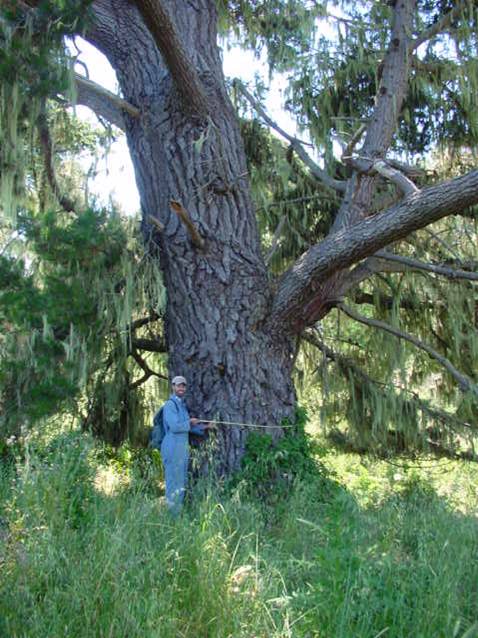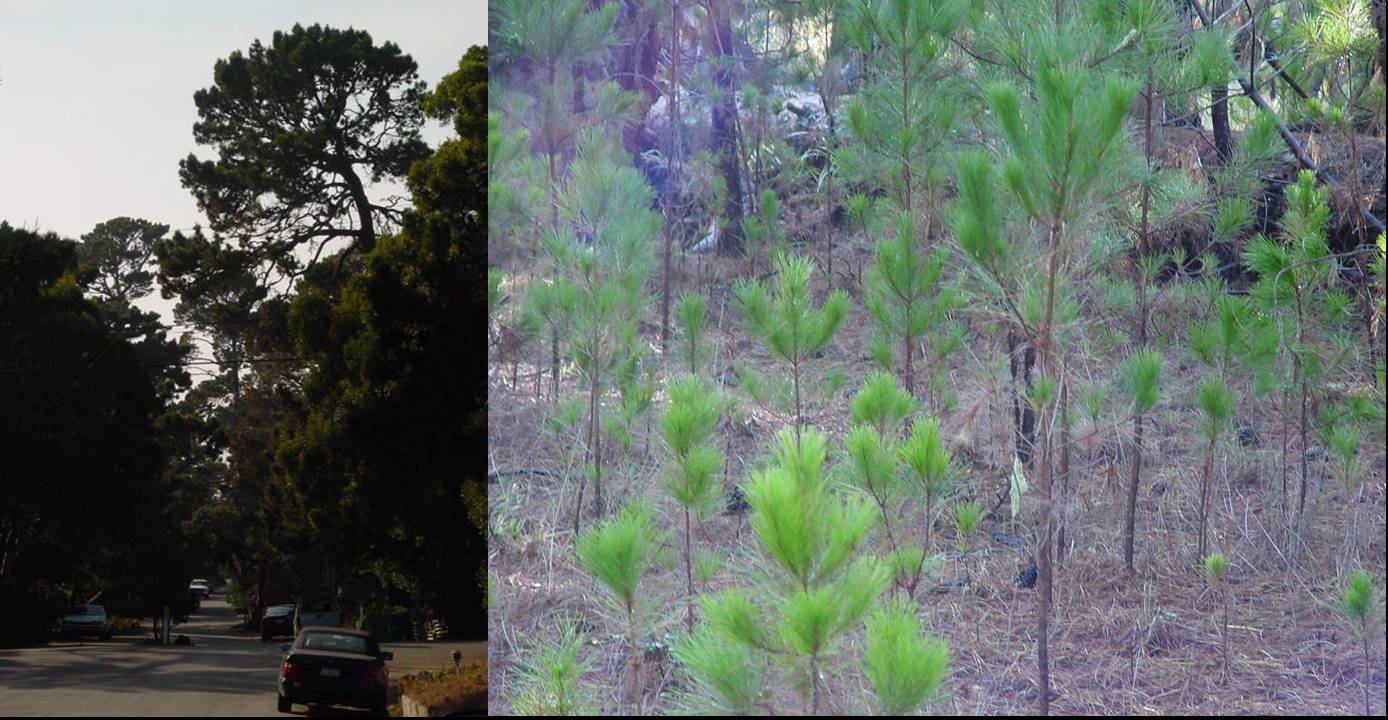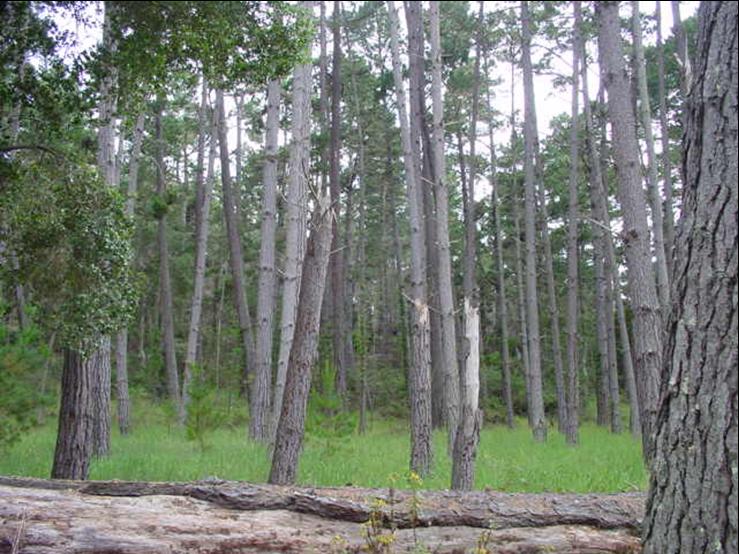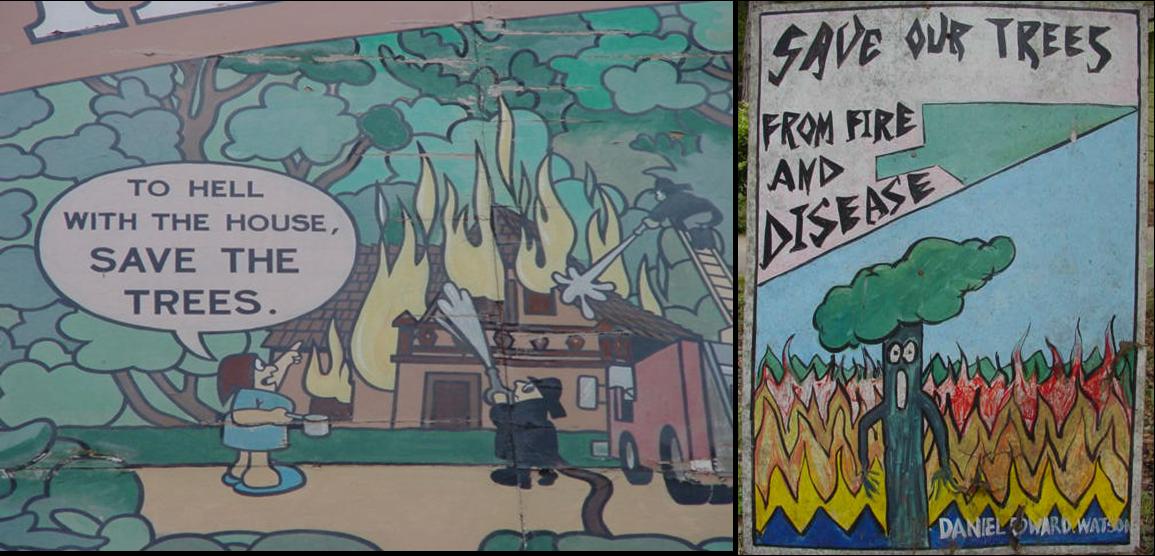| Welcome to the | |
 |
Insect Ecology Lab at Michigan Tech |
|---|---|
|
Home Page |
Pitch Canker and Monterey Pine Health
Brian P. Henry, Andrew J Storer "Monterey Pine (Pinus radiata) in California: Variation Among Native Forests and Health as a Predictor of Tree Removal in an Urban Forest (A Thesis)" View the Publication (pdf) Scroll down for more info!  Three
native Monterey
pine (Pinus radiata
D. Don) populations occur along the central coast of California and
cover a total area of approximately 5,330 hectares. The
goals of this research were 1) to provide a contemporary
characterization of
the three
native populations and 2) to determine which biological and
environmental factors
were predictive of Monterey
pine street tree removal in an urban forest. For the
natural forests, forest heath, stand structure and understory plant
communities were
compared between six stands, four on the Monterey Peninsula
and one each at Año Nuevo and Cambria.

On
the
|
| School of Forest Resources and Environmental Science Michigan Technological University 1400 Townsend Drive Houghton, MI 49931 (906) 487-3470 ces@mtu.edu |
Copyright © 2006 |

